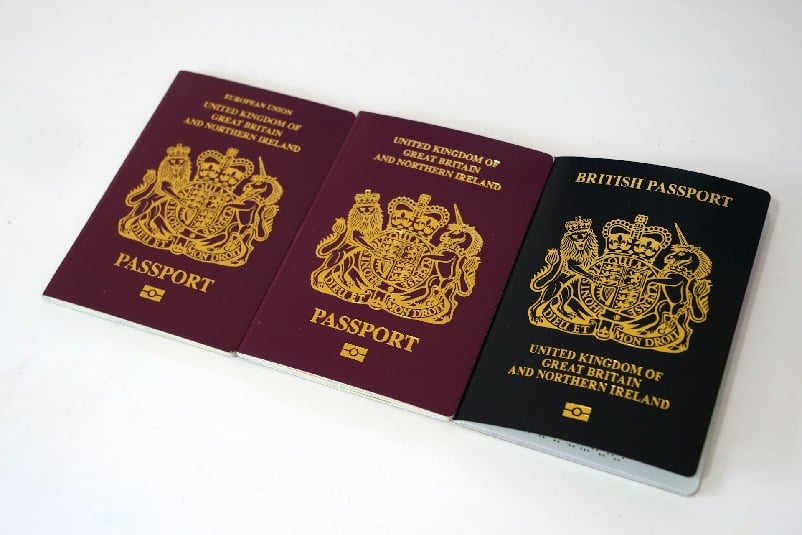Canada Permanent Resident Requirements for Nigerians
Many Nigerians dream of getting onto a Canadian Permanent Resident program so that they can start a new life in North America. The permanent resident status gives you near complete access to all aspects of Canadian life, including work, education, and travel. However, you must first meet the requirements of permanent residency to apply for the Permanent Residence visa.
Once you have realised you are eligible, you can contact IAS for expert assistance with your application. You can contact our Lagos office at +2342013306361 or call us on +44 (0) 3316300929 to find out how we can help. Or message us online.
Read our 1001 reviews
Need Assistance with Your Permanent Resident Program?
We have successfully helped numerous Nigerians in securing their Permanent Residence. If you want to live in Canada and need guidance on the eligibility requirements reach out to us for expert support. Our team of lawyers is here to address any questions you may have regarding your application.
Nigerian Emigration
For Nigerian emigration matters, please call +44 (0) 3316300929 or +2342013306361
Other Immigration and Emigration Matters
For immigration/emigration to/from other countries, please call:
US – +1 844 290 6312
Ireland – (+353) 061 518 025
UK – (+44) 333 4149244
Overview of Canada Permanent Resident Requirements for Nigerians
Permanent residency is one of the greatest privileges an immigrant to Canada can have, second only to full citizenship. PR cards are valid for five years and can be renewed an indefinite amount of times. The main privileges of PR is the right to live, work and study in Canada indefinitely. You can also access social benefits and will have full protection under the law.
The main drawback to PR status is that you won’t have political rights such as the vote. However, PR is a pathway to citizenship and you will gain these rights when you get Canadian citizenship.
There are multiple pathways to PR and this article deals with the most common: Express Entry and Family Sponsorship. Other pathways include refugee and humanitarian programs.
Two primary work-based Canada PR visa programs operate under the Express Entry system. These programs require you to achieve a certain number of points on the system before you are prioritised for application. The three main skilled work visas are as follows:
- Federal Skilled Worker Program
- Provincial Nominee Program
Nigerians can also access PR through family sponsorship if they have a relative that is already a citizen or permanent resident in Canada. They can sponsor a parent, grandparent, dependent child, or spouse.

General Requirements for a PR Card
However, there is also a range of general requirements which you must also fit if you want a PR card in Canada, regardless of the exact program you use to get there. The general requirements are as follows:
- You are applying through an eligible program
- You have reached the required language proficiency for your program
- You are in good health, as shown by a medical examination
- You have enough money to support yourself and any family members you bring with you when you first arrive in Canada
- You have a clean criminal record in Nigeria and any other country you have lived in and will not pose a threat in Canada.

Express Entry
Overview
Each work-based permanent residency program requires you to apply through the Express Entry system. This system allows you to input your personal information and then assigns you points based on your age, education, work experience, language skills, and more. To be assigned points, you will need to submit your:
- Resume or CV
- Birth certificate
- Language test results
- Education credentials
- Any job offers or nomination letters
- Police certificates and criminal record information for any nation you have lived in
- Proof of funds
You may also be asked for further supporting documents to substantiate any claims you make during your application for Express Entry.

What Score is Required on the Express Entry System?
Two types of scores apply for a Nigerian’s application to be approved. The more simple score is the “Immigration Points,” which assess whether an individual is eligible to migrate to Canada. Immigration points are out of 100, and you must score 67 “Immigration Points” to proceed. Points are awarded based on the following categories:
- Age
- Education
- Language skills
- Work experience
- Adaptability
- Arranged full-time employment
The more complex score is the CRS score. The score required to meet the CRS cutoff will vary depending on the current invitation round. Keep in mind that there is a huge variation in CRS cutoff scores. The all-time lowest CRS cutoff score was just 75 in 2021, but most scores typically range from 300-500 depending on the program you apply for. 480 is considered a good score among all programs. If you have a low score, some programs like PNP (Provincial Nominee Program) may offer a higher chance of success.
Three main factors determine the amount of CRS points that a Nigerian will receive:
- Human capital factor: age, education, experience, and whether you have a spouse
- Skill transferability factor: specific Canadian and foreign work experience and language skills
- Additional factors: Canadian job offer and provincial nomination.
Family Class Permanent Residency
Overview
Getting a great job in Canada as a highly skilled worker is not the only way that you can apply for PR in Canada. If you already have a relative who is a permanent resident or citizen in Canada, you can get family-class permanent residency.
There are three types of requirements to consider when applying for Family Class permanent residency. These are if the immigrant is eligible to be sponsored and if the prospective sponsor is eligible to sponsor the immigrant. Finally, there are also requirements based on the nature of the relationship.
Requirements for the Sponsor and Sponsored Person
Beginning with the requirements for the sponsor, there are a few factors to ensure the sponsor aligns with. These include the following:
- They must be at least 18 years old
- They are a Canadian citizen or permanent resident living in Canada
- They cannot have been sponsored for PR as a spouse within five years if sponsoring another spouse
- They must sign a sponsorship agreement agreeing to financially support the sponsored person
- They need to earn enough to meet the minimum income threshold
The Minimum Income Threshold varies based on the size of the family unit that is being sponsored for permanent residency in Canada. The minimum requirement for sponsoring one person is $35,576 for a family of two, rising to a maximum of $$77,750 for a 7-person family unit.
They are also some requirements for the sponsored person, which include:
- They must be at least 16 years old
- They must be closely related to the person sponsoring them
- They cannot be too closely related by blood if a spouse is sponsoring them.
Requirements for the Relationship
Three types of familial relationships can be sponsored for permanent residency: a partner, parent, grandparent, and dependent child. They are specific conditions in each of these relations to be aware of.
When sponsoring a partner, the relationship must fit one of three categories:
- Spouse: the partners are legally married in Canada or their home country
- Common-law partner: the partners must have cohabited continuously for at least a year
- Conjugal partner: the partners have suffered exceptional circumstances that have stopped them from marrying or entering into a common-law partnership
Please note that each of these cases also applies to same-sex partnerships.
The requirements for the relationship between the sponsor and a parent or grandparent are much simpler. They must simply be related in that manner by blood or legal adoption procedures.
This requirement also applies when sponsoring a dependent child, who must be the sponsor’s biological or adopted child. Some other requirements apply for the sponsored child, which includes that they must be the following:
- Less than 22 years old and not married or in a common-law partnership
- Or older than 22 and cannot be financially self-supporting because of a physical or mental condition.

Factors Preventing Family Class Sponsorship
There are also several factors that will prevent a prospective sponsor from being allowed to sponsor their family member for permanent residency. This includes the following:
- Failed to pay previous immigration loans or family support payments
- Previous sponsored family members were forced to use social assistance
- Currently under a removal order or is in prison
- Receiving social assistance. This does not apply if the social assistance is for disability payments
- Have filed for bankruptcy
- Have previously been sponsored and held PR status for less than five years
- Has been convicted of a serious crime such as a violent or sexual offence
If any of these cases apply to your sponsor, you will need to investigate alternative ways to get PR in Canada, such as through work.

How Can IAS Help?
IAS has helped people from all over the world to become permanent residents in Canada. Our expert immigration advisors and lawyers can guide you through the process to help you learn if you are eligible for PR in Canada. Once you have decided to apply, we can take you through the application process and will pair you with an immigration attorney that can maximise your chances of success.
Having moved to Canada as a permanent resident, you can continue to work with us. Our immigration team members are also experts in helping Nigerians convert from permanent residency to Canadian citizenship.
If you want to enlist our help, please don’t hesitate to contact us. You can call our Nigerian team at +2342013306361. Alternatively, you can speak to us by calling +44 (0) 3316300929. We are also available to answer any queries online.
Table of Contents
Table of Contents will appear here.Table of Contents
Table of Contents will appear here.Legal Disclaimer
The information provided is for general informational purposes only and does not constitute legal advice. While we make every effort to ensure accuracy, the law may change, and the information may not reflect the most current legal developments. No warranty is given regarding the accuracy or completeness of the information, and we do not accept liability in such cases. We recommend consulting with a qualified lawyer at Immigration Advice Service before making any decisions based on the content provided.
Services we Provide
Frequently Asked Questions
Having a PR card in Canada gives you access to some incredible rights almost akin to those enjoyed by a full Canadian citizen. The most exciting benefits for Nigerian applicants include the following:
- Access to live and work anywhere in Canadian territory
- Ability to leave and re-enter Canada with permanent resident travel documents
- Access to healthcare and social services
- Ability to sponsor family members
- Free education for children
- Rights protected under Canadian law.
PR in Canada is a very popular pathway for Nigerians to become Canadian citizens because standard PR visas are eligible for five years. This is important because you can apply for Canadian citizenship after three years of living in Canada on a PR card. The basic requirements are as follows:
- Have been a permanent resident and have been living in Canada for three of the past five years
- Have filed taxes for the work you have completed in Canada
- Pass a citizenship test
- Pass a Canadian Language Benchmark (CLB) test of Level 4 or higher in English or French
Level 4 in the CLB refers to being able to have short everyday conversations. You must also understand the basics of written English or French, including grammar and tenses.
















